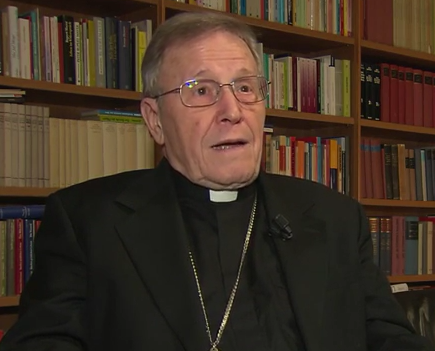
Martín Lutero
Martín Lutero was a German theologian and key figure in the Protestant Reformation, known for challenging the practices of the Catholic Church in the 16th century. His actions and writings led to significant religious changes in Europe, including the emphasis on personal faith and the public expression of devotion, which influenced the tradition of processions during Holy Week.
Born on Nov 10, 1483 (542 years old)
Global Media Ratings
Countries Mentioned
No country-level mention data available.
Interactive World Map
Each country's color is based on "Mentions" from the table above.
Recent Mentions
 Ecuador:
Martín Lutero burned the Papal Bull and reaffirmed his critical stance against the Church.
5
Ecuador:
Martín Lutero burned the Papal Bull and reaffirmed his critical stance against the Church.
5
 Colombia:
Gustavo Petro spoke about Martín Lutero in the context of the evolution of churches and human behavior.
7
Colombia:
Gustavo Petro spoke about Martín Lutero in the context of the evolution of churches and human behavior.
7
 Peru:
Martín Lutero is known for his theological contributions and for initiating the Protestant Reformation by nailing his 95 theses in Wittenberg.
9
Peru:
Martín Lutero is known for his theological contributions and for initiating the Protestant Reformation by nailing his 95 theses in Wittenberg.
9
 Spain:
Martín Lutero was an abbot and theologian before initiating the Protestant Reformation.
6
Spain:
Martín Lutero was an abbot and theologian before initiating the Protestant Reformation.
6
 Bolivia:
Martín Lutero was a significant figure in the Augustinian order who initiated the Protestant Reformation.
8
Bolivia:
Martín Lutero was a significant figure in the Augustinian order who initiated the Protestant Reformation.
8
 Venezuela:
Martín Lutero was a significant figure in the Protestant Reformation and an important representative of the Augustinians.
8
Venezuela:
Martín Lutero was a significant figure in the Protestant Reformation and an important representative of the Augustinians.
8
 Spain:
Martín Lutero published the 95 theses in 1517, which led to the Protestant Reformation.
4
Spain:
Martín Lutero published the 95 theses in 1517, which led to the Protestant Reformation.
4
 Venezuela:
Martin Luther lived during the corrupt papal era of the Borgia family and believed forced celibacy could lead to immorality.
6
Venezuela:
Martin Luther lived during the corrupt papal era of the Borgia family and believed forced celibacy could lead to immorality.
6
 Bolivia:
Martin Luther lived during the corrupt papal era of the Borgia family and believed forced celibacy could lead to immorality.
5
Bolivia:
Martin Luther lived during the corrupt papal era of the Borgia family and believed forced celibacy could lead to immorality.
5
 Costa Rica:
Martín Lutero's teachings were pivotal in the spread of Protestantism across Europe.
7
Costa Rica:
Martín Lutero's teachings were pivotal in the spread of Protestantism across Europe.
7
